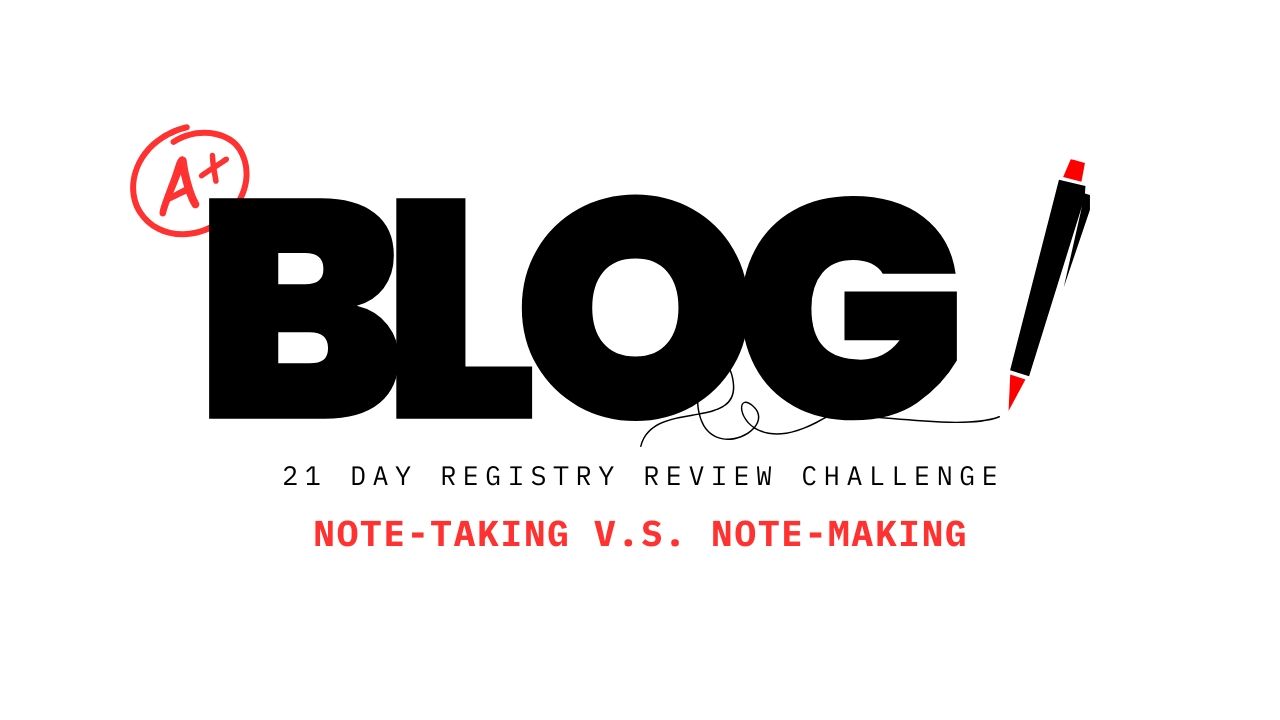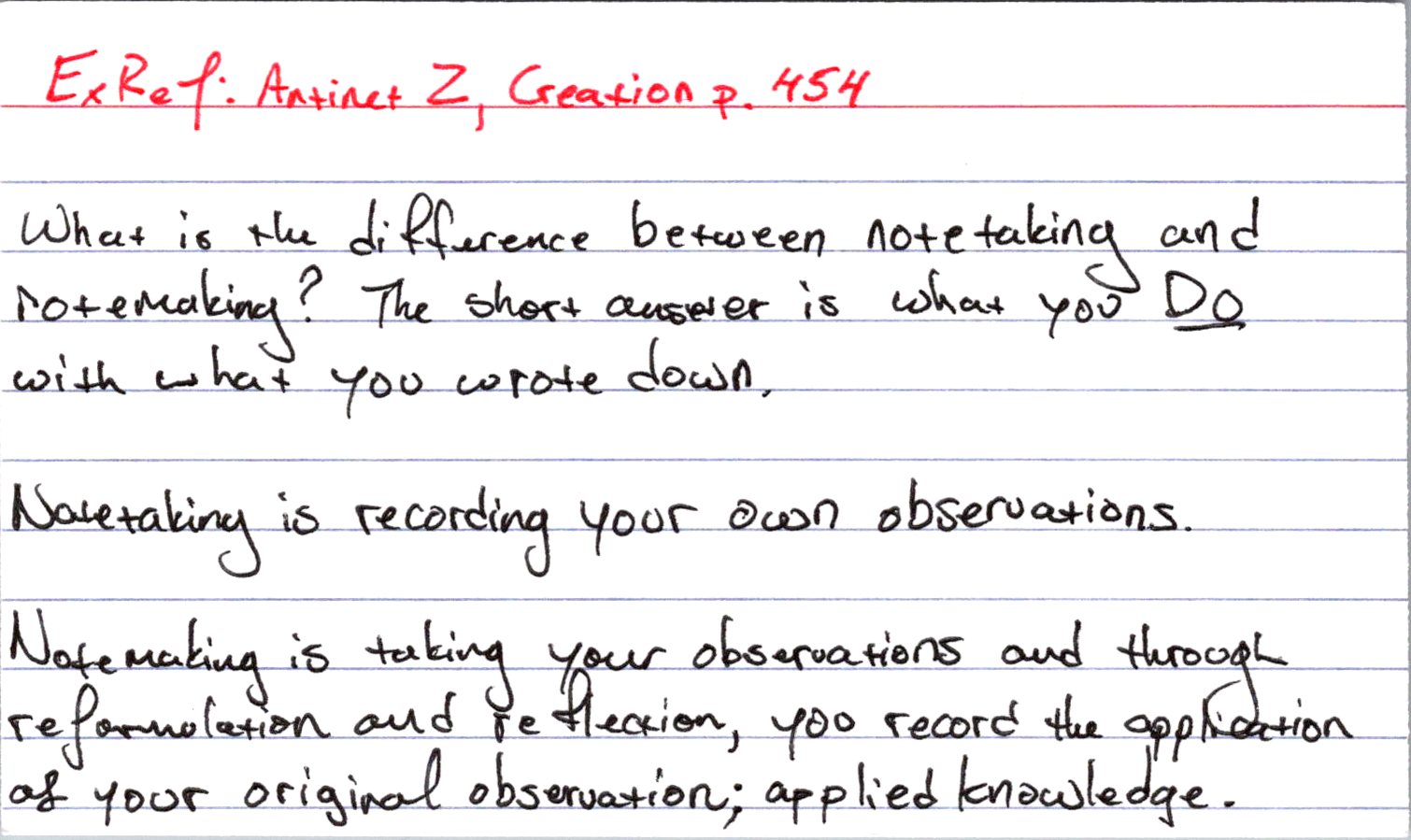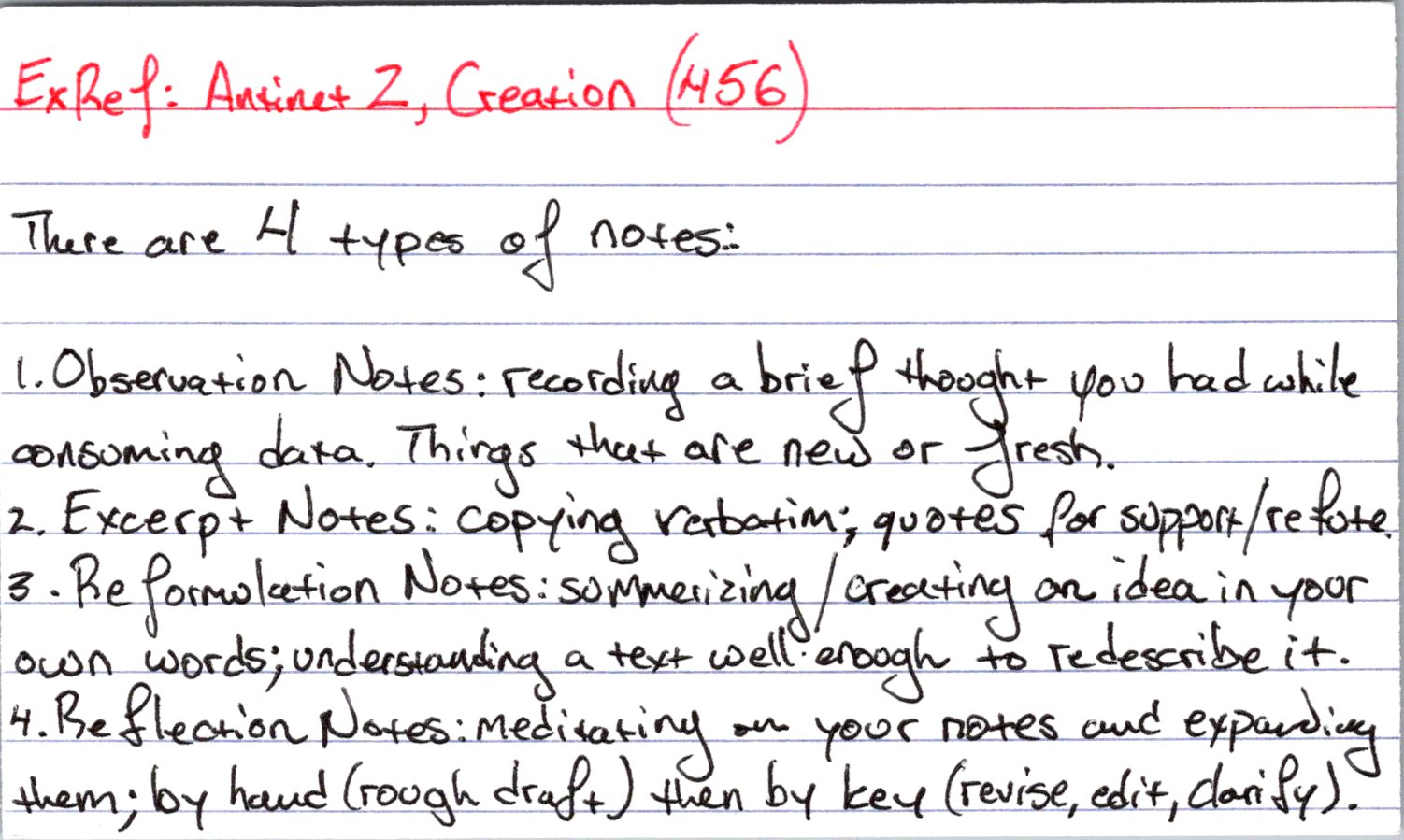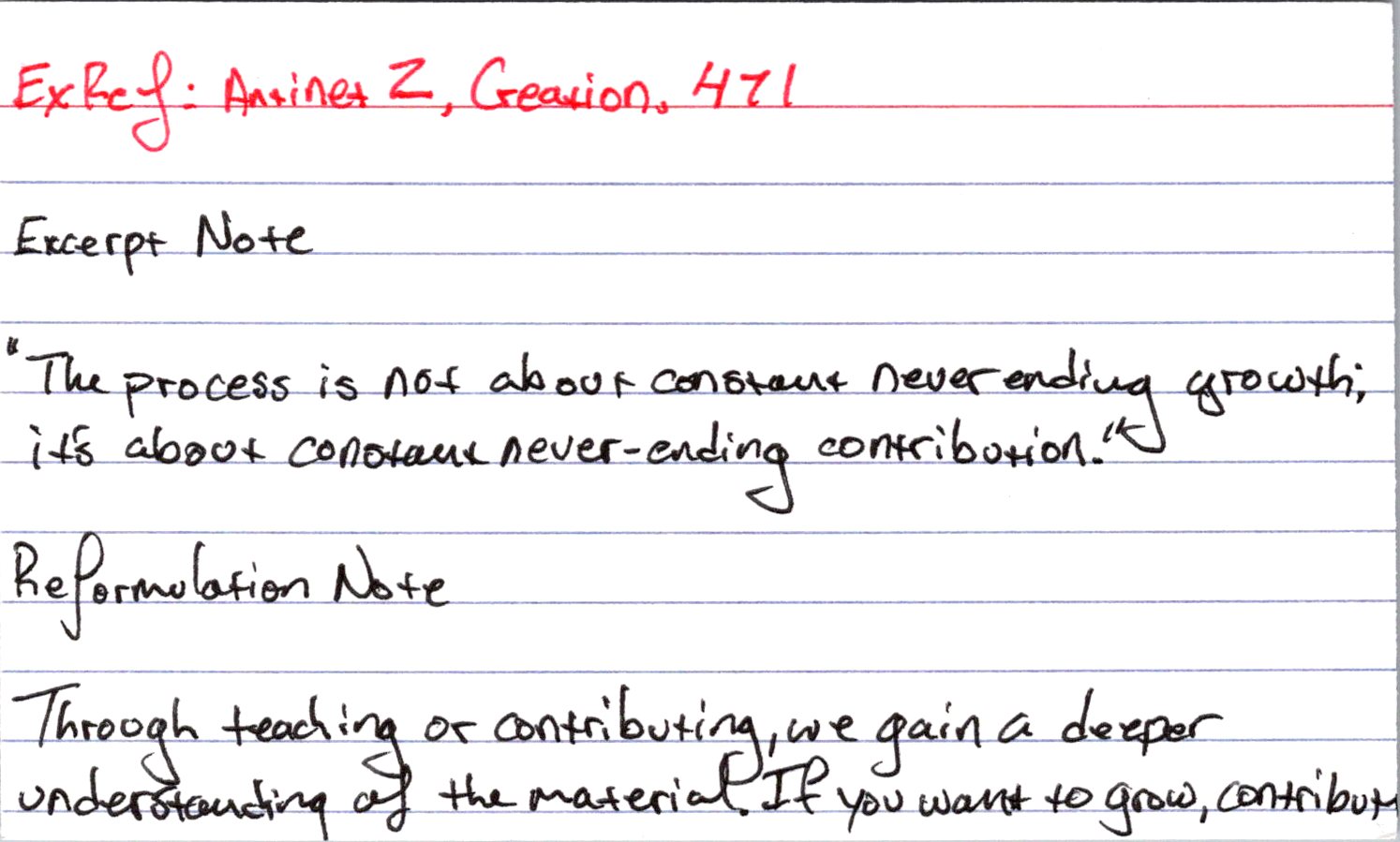Note-Taking vs Note-Making: The Best Way to Take Notes
Oct 02, 2025

Teaching is the best way to grow in any discipline. This is what I tell the students who take the 21 Day Challenge... “if you want to learn, you have to approach your studies as if you were going to teach it to someone else.” And I have them do that as part of the assignment each day.
It all starts with notes. And I want to share something with you that I was meditating on early this morning (at the time of this writing).
If you don't know the difference between note-Taking and note-Making, you'll continue doing what Albert Einstein called "insanity."
It's time to change things up so we all don't go insane repeating the same mistake...👇
There's a common way students (and even professionals) take notes, it's a combination of recording their own observations and excerpting (meaning they just copy things down word-for-word).
That's note-Taking... you're observing and excerpting what you're reading and listening to. Is this bad? Only if you leave it there. It's good to do this, but it falls short if you want to really learn something.
Enter, note-Making - this is where you take your observations (along with any excerpts), and you run them through a process of reformulation and reflection.
What is reformulation?
It's basically summarizing an idea that an observation or excerpt gave you, in your own words. It's understanding something well enough to redescribe it. And there are three different types of reformulations:
- Topical: text-based summaries of content
- Outline: breaking down the material into a series of steps
- Diagram: hand-drawn illustrations to present your idea
One of our instructors in the 21 Day Registry Review Challenge, Professor Christa Crowder, is the one who introduced me to the last reformulation tactic and it's amazing how effective it is.
What is reflection?
Meditating on your observations, excerpts and reformulations, so as to expand on the idea. All of the ideas that are presented here came from the notes I wrote this morning as I was reading (see below).



I always write my rough draft/thoughts by hand and after having some time to reflect I then edit, clarify and expand on those observations using my keyboard.
Ideally, my process will eventually be pen/paper typewriter keyboard. In a perfect world, I’d have our students do it this way too, but I’m not naive to think they will buy a typewriter (or maybe they would).
One of the things you should be asking yourself is, "how can I apply what I learn to a real-life situation?" and even more importantly, "how can I apply what I now know to benefit the people around me?"
In summary, the process in which you learn the best is "not about constant never-ending growth," as one writer says, "it's about constant never-ending contribution."
Through teaching/contributing, we gain a deeper understanding of the material we're learning. Paradoxically, if you want to grow, start contributing.
If you want to take a deeper dive on taking notes, head over to radtechregistry.com/store and sign up to the 21 Day Challenge. It's actually the first thing we teach in the Welcome Center because you need a solid foundation before you embark on preparing for your registry.
Stay connected with news and updates!
Join our mailing list to receive the latest tips, tricks and insights to help you pass your registry!
We hate SPAM. We will never sell your information, for any reason.

